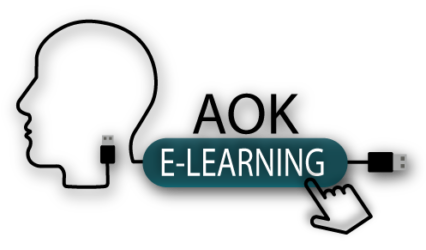John B. Kirk, Director
AOK Basic Skills Project (a personal retirement project, not an organization)
Portland, Maine
E: kirkjohnb5@gmail.com
W: www.aokbasicskills.gratis
2021-11-20
https://sustainabledevelopment.un.org/contact/
United Nations Headquarters
Sustainable Development Goals Office
405 East 42nd Street
New York, NY, 10017, USA.
Re: How a “Zero Hunger”, multilingual website could address nutritional problems and conservation practices for the poor and educationally disadvantaged.
Hello UN Global Goals 2 – “Zero Hunger”:
Not many realize that today in the world today there are about 800,000 people who are undernourished 200 million who are overweight. Many of the former group are economically disadvantaged. Of course, world hunger and proper nutrition and are two important, overlapping issues facing the world today.
A User Friendly “Zero Hunger” Website with participant interchange could help give disadvantaged families the ability to be able to feed themselves in an inexpensive, nutritional way and to be able to contribute to the effort to turn around the food shortage. This, in turn, would help them to become stakeholders in World Goals 2.
How a “Zero Hunger”, Multilingual Website could Help the Undernourished and the Overweight
What can be done to help the overweight and the undernourished? For both the undernourished and the overweight, nutritional education explained in an easy-to-understand way with healthy, inexpensive recipes could help a lot. There is an overlap that exists between the two groups because the latter at times eats too much of the wrong food. Different elements of both groups could also benefit from literacy training and exercise education.
AOK Life Skill Workshops would like to propose that World Goals 2 maintain a multilingual website that supplies this information at an easy reading level. The promotion of simple, tasty recipes for different geographical areas and cultures in the world could also help. There could be a participant interchange capability on the website with auto-translation included. Please see sample questions below.
Sample Questions for Participant Interchange in the Nutrition Section of the website
- Why is nutrition so important?
- What is an example of good nutrition?
- Where can you find a list of healthy, easy to make and economical recipes from different cultures? What are some examples?
- How can you find recipes that are recommended for the economically disadvantaged?
- What do the basic foods cost in your area?
- How can you learn about practical ways to use a simple pressure cooker for cooking legumes, grains and vegetables?
- Where can you find out about nutritional basics and easy ways to adjust a recipe to make it healthier?
- How can someone contribute to the website an easy, nutritional recipe that could be of interest to many people?
- How can you substitute for certain foods in a recipe that are not available where you live?
- What are examples of good hygiene and sanitation as relates to cooking?
An Example of Attracting Practical Recipes from Around the World
A “Zero Hunger” website could have a special “contribution section” for practical, inexpensive recipes that people have sent in from around the world. AOK Life Skill Workshops has a recipe it would like to share in this regard. Please see below.
AOK’s Steamed, No-knead Sandwich Bread
No doubt the idea of “steamed, no-knead sandwich bread” for economically disadvantaged people isn’t original, but it’s doubtful that it’s caught on yet in many parts of the world. For example, it’s little known in Ecuador.
As this bread is easy to make, inexpensive, and potentially protein-rich, it could possibly save families half a dollar or more daily as well as help their diets. In the Ecuadorian Sierra, there are many people who don’t have an oven, and this bread uses a gas burner and several pots to make it.
The recipe for this bread was also tried, tested and accepted by the Ministry of Health for Ecuador in a Quito hospital, and the recipe was sent out to pre-school child care centers in Pichincha Province, Ecuador.
The primary purpose of this bread is to raise the protein level of pre-school children to help prevent stunted growth; it also enables elderly persons to eat healthy food, as the bread is quite soft. The bread is steamed in a large pot for 45 minutes using little water and energy until it has an internal temperature of about 83C (at 71C virtually all bacteria are eliminated).
To see the instructions for making this bread, please look at the website www.aokefle-learning.com. At the page on this website under the “Food Preparation Wkshops” section, see the page “Wkshop: Steamed Bread & Pancakes w/ Protein”, and right below “Steamed Bread/Pancake Instructs”.
How a “Zero Hunger”, Multilingual Website Could Address the World Food Shortage
What can be done to help the undernourished in terms of the world food shortage? A website could introduce and promote conservation strategies that people could adopt on a daily and long-term basis to become stake holders in Global Goals 2030.
It could also provide website addresses and summaries of articles written about the problem at easy-to-read levels followed by questions and answers. This could help with participant interchange by video or e-mail.
A List of Some of the Key Problems for the World Food Shortage
The reasons for a “Zero Hunger” website don’t stop inside the home with nutritional education – there are a number of ecological issues participants could learn about. Climate change and global warming caused by fossil fuel is one significant problem. There are also associated migratory problems caused by land scarcity, water shortage, and economic globalization; and today the Corona Virus is causing the amplification of the overall problem.
Examples of Website Articles that could be Summarized at an Easy-to-Read Level
The world food shortage: “According to WFP data, there are about 800 million undernourished people and 2 billion people who are overweight in the world today” https://www.who.int/news/item/15-07-2019-world-hunger-is-still-not-going-down-after-three-years-and-obesity-is-still-growing-un-report
Climate change: “For millions of people across Africa, Asia and Latin America, climate change means more frequent and intense floods, droughts and storms, accounting each year for up to 90 percent of all climate-related disasters. These can quickly spiral into full-blown food and nutrition crises.” https://www.wfp.org/climate-action
Climate change: “However, the effects of climate change on both population mobility and food … potential and current – between climate change, food security and migration… Economic globalization, combined with the growing global land scarcity and the …” https://www.researchgate.net/publication/286408353_Climate_Change_and_Migration_Food_Insecurity_as_a_Driver_and_Outcome_of_Climate_Change-Related_Migration
Land degradation and shortage: “Global food production is being undermined by land degradation and shortages of farmland and water resources, making feeding the world’s rising population – projected to reach nine billion by 2050 – a daunting challenge, the United Nations Food and Agriculture Organization (FAO) said in a report unveiled today.” https://news.un.org/en/story/2011/11/396332-land-degradation-and-water-shortages-threaten-global-food-production-un
Fossil fuels and global warming: “Nations Must Drop Fossil Fuels Fast, World Energy Body Warns” Planet warming pollution has an effect on the weather, which in turn effects where different crops can be successfully planted, which in turn effects populations moving so that they can grow food to eat. https://www.nytimes.com/2021/05/18/climate/climate-change-emissions-IEA.html
Coronavirus: “Coronavirus could push more people to move out of necessity as https://www.wfp.org/news/coronavirus-could-push-more-people-move-out-necessity-hunger-surges-among-migrant-and hunger surges among migrant and displaced communities, says new UN report” https://www.wfp.org/news/coronavirus-could-push-more-people-move-out-necessity-hunger-surges-among-migrant-and
Sample Questions for Participant Interchange for the Conservation Section
- What is conservation?
- How much food insecurity is in your area?
- Why is there so much hunger in the world?
- What is the world’s population, and about how many undernourished and how many overweight people are there today?
- What causes forced migration, and what is one way to solve the problem?
- What is climate-smart agriculture and what are some crop rotation rules?
- What is being done for conservation where you live?
- How has Covid 19 affected world hunger?
- Is productive farming in your area being negatively affected by the climate or poor agricultural practices?
- Has the weather in your area changed over the past 10 years? If it has changed, what are some causes of this?
A “Zero Hunger Website” could also promote good conservation practices for participants to use to help with the world food shortage
“10 easy ways you can help our environment”
- Keep your garden or greenspace chemical-free. Cut down on your use of herbicides and pesticides…
- Don’t buy single-use plastics. …
- Shop locally, shop organically. …
- Record the wildlife near you. …
- Re-use and Recycle. …
- Reduce your carbon footprint. …
- Avoid peat-based composts. …
- Plant pollinator-friendly plants.
https://www.google.com/search?q=Ten+Simple+Things+You+Can+Do+to+Help+Protect+the+Earth&rlz=1C1GCEA_enEC927EC927&oq=Ten+Simple+Things+You+Can+Do+to+Help+Protect+the+Earth&aqs=chrome..69i57.1708j0j7&sourceid=chrome&ie=UTF-8
Conclusion
“The Whole Food Workshops” contain life skill workshops that are primarily written for people of low economic means. The information is imparted freely to help their education and ability to feed themselves in an inexpensive, nutritional way.
With children learning how to use the Internet in schools, a “Zero Hunger Website” that’s focused on economical nutrition, conservation practices for the world food shortage, and international participant communication will gradually come into its own.
AOK Life Skill Workshops would be happy to freely share its digital “Food Preparation Workshops” and supporting materials with Global Goals 2 if there is interest. Please contact me at the e-mail address below.
Sincerely,
John B. Kirk, Director
E: kirkjohnb5@gmail.com
About the writer:
John Kirk is a semi-retired ESOL teacher over 65 who lived in Ecuador for over 10 years before recently relocating to Portland, Maine in the U.S. He is the director of AOK, a charitable educational effort that was connected to his English school in Quito, Ecuador. AOK is not an organization. It specializes in teaching basic skills ESOL, native speaker Spanish, and nutrition.
During the past three years, John has written 20 AOK Basic Skills Workshops and before the Pandemic presented many of them throughout the Ecuadorian Sierra. The theme of the presentations is “How you can use the Internet to improve your knowledge of important life and educational skills without cost”. John holds the following degrees: M.S. Ed in Reading Education K-12, a MATESL, and an A.A.S. as a Dietetic Technician.

